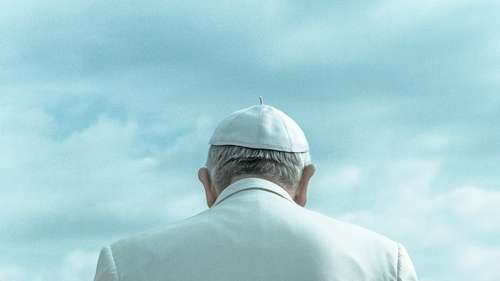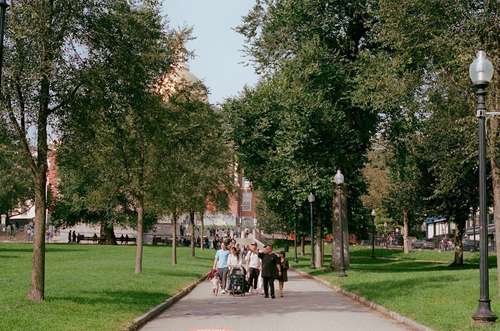Pope Leo has raised his voice against the current U.S. immigration policies during a recent address that resonated deeply with many involved in humanitarian work. People from various quarters are now carefully reflecting on the criticisms the Pope has articulated about how migrants are treated in the United States. His remarks spark a conversation that goes far beyond political lines, striking at the heart of what it means to uphold human dignity.
It’s not often that religious leaders step into such heated political debates, but when Pope Leo speaks, the message is echoing loud and clear. The Pope’s comments have stirred swirling debates over ethics and justice, urging a reconsideration of policies that many believe are unjust and inhumane. The conversation is heating up as voices demand change and better treatment for migrant communities.
The Pope's Perspective on U.S. Policies
The Pope’s stance on U.S. immigration matters isn’t just another talking point in political discussions; it’s a heartfelt appeal for respect and compassion towards migrants. His criticism focuses on the extremely disrespectful treatment being meted out to those seeking refuge on American soil. Many citizens, regardless of their political affiliations, have begun to question where our collective humanity stands.
It’s hard not to be moved by the way Pope Leo frames his concerns. He draws attention to the violent and inhumane nature of some U.S. border policies and calls them out as betrayal of the values that many of us hold dear. Have you ever wondered why a call for justice seems to echo stronger when it comes from a place of moral authority? That’s exactly what the Pope seems to be doing, urging a return to ideals of mercy and human dignity.
The Pope’s perspective is deeply rooted in the Catholic Church’s long-held belief in the sanctity of life. Discussing these policies, he emphasizes not only the legal aspects but also the ethical ones—highlighting the importance of compassion and humanity in shaping immigration reform. The statement resonates on multiple levels, confronting both the religious and political aspects of the debates on immigration.
The Role of the Catholic Church in Immigration Reform
With his criticisms, Pope Leo also sheds light on the crucial role that Catholic bishops and the broader Church play in speaking up for the vulnerable. This isn’t simply a crack in the wall of religious sentiment; it is a call to action for immigration reform driven by moral necessity. The Catholic Church has historically been a strong advocate for the oppressed, and this time is no different.
Many Catholic leaders have echoed the Pope’s criticism, drawing from their shared responsibility to safeguard human dignity. They argue that the current U.S. policies fall short of ethical standards that dictate humane treatment. The bishops have organized meetings, community outreach programs, and have put forth proposals to influence policymakers to consider reforms that would protect migrant rights. It is an open call asking the government to reexamine the way migration policies are enforced and to put more empathy into the legislative process.
By bringing this issue into the spotlight, Pope Leo is reminding us of the Church’s long tradition of challenging injustice. The role of the Catholic Church is not simply to offer spiritual guidance, but also to ensure that compassion and moral values translate into tangible change. Can you imagine a world where judicial decisions do not incorporate ethical considerations? The Pope’s viewpoint insists that bridging the gap between law and humanity should be a priority.
Implications and Urgency for Change
The fallout from the Pope’s outspokenness could lead to significant changes in U.S. immigration policies. The strong criticism has already set off ripple effects among lawmakers and advocacy groups urging for more humane policies. The core message is clear: respect for every human being should be at the forefront of any policy decision regarding migrant rights.
Given the complexity of border policies and immigration reform, Pope Leo’s commentary acts as a catalyst for discussions that transcend mere legislative frameworks. This is a moment when moral perspectives meet political necessity—a reminder that strict government policies should be balanced with humanitarian concerns. The Pope’s stance exemplifies an urgent ethical message that could potentially realign international relations centered around human rights.
Differing viewpoints are emerging from all sides of the political spectrum. On one side, there are supporters who believe that strong border measures are essential for national security. On the other, critics who argue that such measures contradict the ethical imperative of compassionate governance. The Pope’s criticisms add a unique religious perspective to the debate, invoking both legal and moral considerations. His words stir the soul and challenge us to consider whether our policies align with our collective sense of decency.
Many U.S. citizens are left pondering this ethical dilemma—how can we reconcile national interests with global humanitarian obligations? The urge for immigration reform isn’t new, but his message has reinvigorated the debate with the kind of moral clarity that is hard to ignore. His remarks push for a reevaluation of policies that appear to compromise the very principles that define us as a nation dedicated to freedom and justice.
A Look Forward: Potential Reforms and Broader Impact
What comes next after such a bold statement from Pope Leo? The road ahead is filled with potential reforms and a reexamination of U.S. policies regarding migration. Policymakers might just take advice from the Pope’s extended call for humane treatment, possibly revisiting the border practices that have been criticized repeatedly.
This conversation doesn’t stop at policy discussions; it extends to social and cultural fronts as well. For many, the Pope’s stance is a rallying cry urging individuals to support reforms that benefit both lives and communities. His approach also highlights the importance of international relations, where ethical leadership can influence global perceptions and policies. Imagine the societal shift if compassion took a center seat in every political decision—it could lead us to a much more balanced and secure future.
The criticisms voiced by Pope Leo serve not only as a wake-up call for continued dialogue but also as a tangible belief in progress. People are paying attention, and the debate on whether U.S. immigration policies respect our shared humanity is now more prominent than ever. His message remains a beacon for those who champion the rights of migrants amid increasingly complex border challenges.
Ultimately, the Pope’s call challenges both the U.S. government and its critics to find common ground, where justice and empathy guide policy formulation. It’s an invitation to question: How can a society be truly free if it denies respect and dignity to any of its members?
In this time of heightened political and humanitarian debates, Pope Leo’s stance urges us all to step back and reflect: Do our laws mirror the ethical standards we aspire to uphold? It is a significant reminder that behind every policy lie human faces, each deserving of respect, compassion, and fair treatment. Through his unwavering criticism, Pope Leo has set a new standard for what it means to be both a religious leader and a humanitarian advocate.




